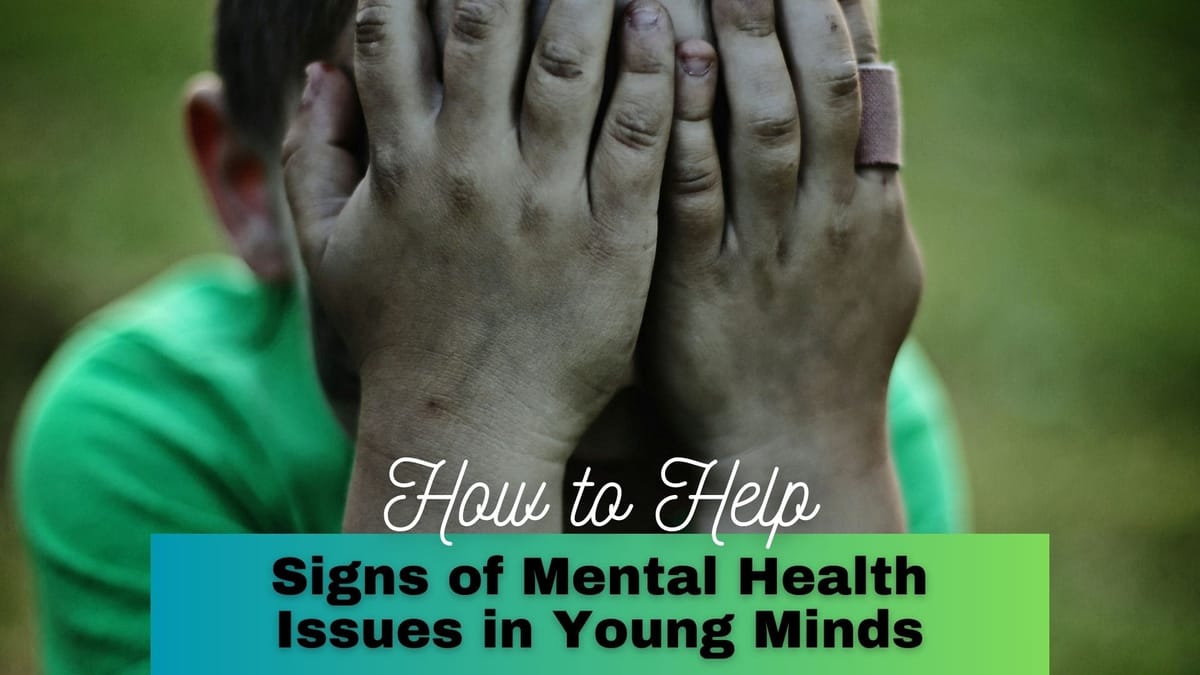Signs of Mental Health Issues in Young Minds: How to Help
Children and teenagers are particularly vulnerable to various mental health challenges, and early intervention can make a significant difference

Mental health is an essential aspect of overall well-being, and it is crucial to recognize the signs of potential issues in young minds. Children and teenagers are particularly vulnerable to various mental health challenges, and early intervention can make a significant difference in their development and future outcomes. As parents and caregivers, being aware of the behavioural, emotional, physical, and social indicators can help identify potential problems and provide the necessary support.
In this article, we will explore the signs to watch out for in children and teenagers, as well as provide guidance on how parents can assist their young ones in navigating mental health challenges.
By being proactive, fostering open communication, and seeking professional help when needed, parents can play a crucial role in promoting positive mental health outcomes for their children and teenagers. Remember, mental health is just as important as physical health, and addressing issues early can have a profound impact on a young person's overall well-being and future.
The below information has been divided into two categories - younger Children and Teenagers.
Mental Health in Children
Behavioural Signs:
- Changes in eating or sleeping habits
- Increased irritability or anger
- Withdrawal from activities they used to enjoy
- Difficulty concentrating or sudden drop in school performance
Emotional Signs:
- Excessive worry or anxiety
- Persistent sadness or mood swings
- Fear of specific things or situations
- Expressing thoughts of self-harm or suicide
Physical Signs:
- Unexplained aches and pains
- Complaints of frequent headaches or stomachaches
- Changes in energy levels (excessive fatigue or restlessness)
- Weight loss or gain without a known cause
Social Signs:
- Difficulty making or maintaining friendships
- Avoidance of social situations
- Increased sensitivity to rejection or criticism
- Acting out or rebellious behaviour
In children, be alert for changes in behaviour, emotions, physical symptoms, and social interactions that seem concerning or out of the ordinary. Early intervention is key.
Mental Health in Teenagers
Behavioural Signs
- Increased risk-taking behaviour
- Substance abuse or experimentation
- Isolation from family and friends
- Sudden changes in peer group
Emotional Signs:
- Intense mood swings
- Feelings of worthlessness or guilt
- Extreme sensitivity to criticism
- Loss of interest in activities they used to enjoy
Physical Signs:
- Changes in appetite or weight
- Sleep disturbances (insomnia or oversleeping)
- Physical complaints without medical cause
- Self-harm behaviours like cutting
Social Signs:
- Social withdrawal or isolation
- Increased conflicts with family members
- Difficulty coping with stress
- Expressing feelings of hopelessness or despair
What Parents Can Do to Help their Children
Creating a Supportive Environment:
- Encourage open communication
- Foster a sense of belonging and acceptance
- Provide a safe space for expression without judgment
Promoting Healthy Habits:
- Encourage regular exercise and physical activity
- Ensure a balanced diet and adequate sleep
- Limit screen time and encourage outdoor activities

Seeking Professional Help:
- Recognize when to seek help from a mental health professional
- Connect with school counselors or therapists
- Explore therapy options tailored to children and teenagers
Building Resilience:
- Teach coping skills and stress management techniques
- Encourage problem-solving and decision-making skills
- Foster a positive self-image and self-esteem
Supporting Social Connections:
- Encourage participation in social activities and hobbies
- Facilitate healthy peer relationships
- Address bullying or social conflicts proactively
Educating on Mental Health:
- Normalize conversations about mental health
- Provide age-appropriate information on mental well-being
- Reduce stigma and promote understanding of mental health issues
By incorporating these strategies into daily interactions and routines, parents can play a crucial role in supporting their children's mental health.
Remember, being present, empathetic, and proactive can significantly affect their well-being.





